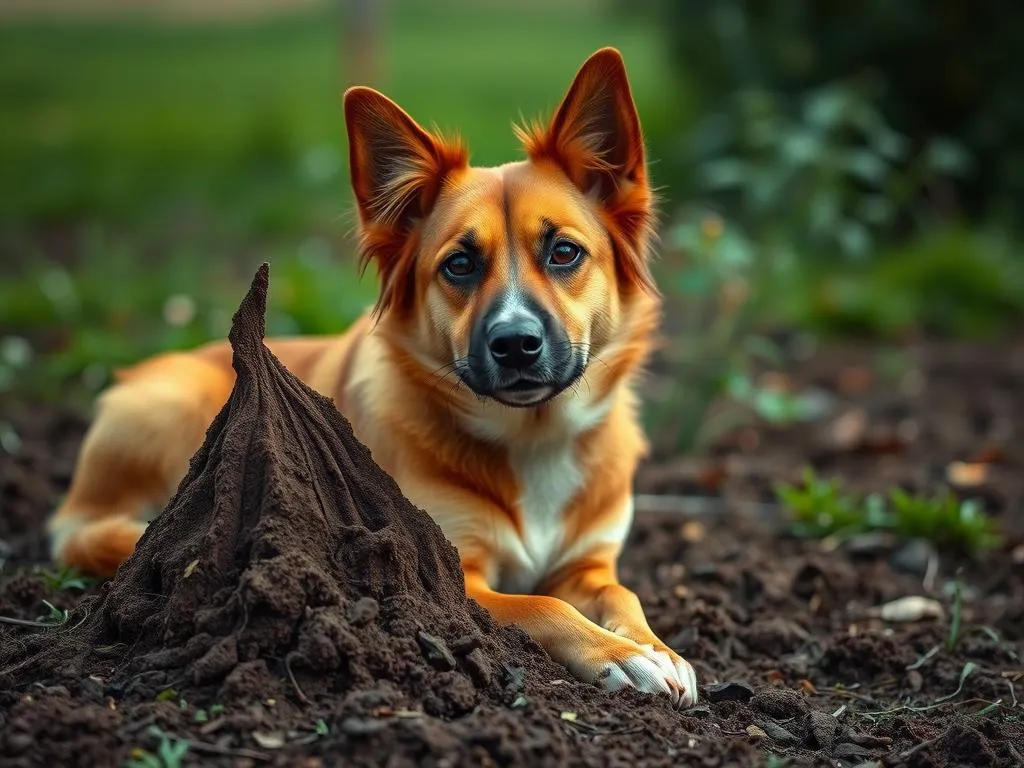
Introduction
Understanding your dog’s health is crucial for their overall well-being. As a dog owner, you may encounter various concerns, but one that often raises eyebrows is why does my dog’s poop smell so bad? This issue can be more than just a nuisance; it can indicate underlying health problems or dietary issues that need attention.
By delving into the factors affecting your dog’s digestion, we can identify why their poop may have an unpleasant odor and explore actionable solutions to mitigate this concern. Let’s uncover the mysteries of your dog’s digestive system and what you can do to promote better health and fresher-smelling poop.
Understanding Dog Digestion
The Dog Digestive System
The dog digestive system is a complex network designed to break down food and absorb nutrients efficiently. It consists of various organs, including the stomach, intestines, liver, and pancreas. Each part plays a vital role in ensuring that your dog derives maximum nourishment from their meals.
Gut health is paramount; a well-functioning digestive system not only helps your dog maintain a healthy weight but also supports their immune system. A disruption in this system can lead to issues such as foul-smelling poop, among other problems.
Common Digestive Processes
When food enters a dog’s stomach, it undergoes mechanical and chemical digestion. The stomach’s acid breaks down food particles, while enzymes begin the digestion of proteins and fats. As food moves into the intestines, nutrients are absorbed, and waste products are formed. The quality of the food your dog eats can significantly influence this process, affecting the smell of their feces.
Factors Affecting Dog Poop Smell
Diet and Nutrition
One of the most significant factors influencing the smell of your dog’s poop is their diet. High-quality dog food, rich in essential nutrients, leads to less odorous stools, while low-quality foods filled with fillers and artificial ingredients can result in foul-smelling feces.
Common ingredients that contribute to bad smells include:
- High-fat diets: These can lead to greasy stools that smell worse.
- Low-quality fillers: Ingredients like corn and soy can be hard for dogs to digest.
- Certain proteins: Some dogs may react negatively to specific protein sources, causing digestive upset.
Health Issues
Foul-smelling poop can also indicate underlying health problems. Conditions such as infections, parasites (like worms), or gastrointestinal disorders can lead to changes in stool odor. Some health issues to be aware of include:
- Gastrointestinal infections: Bacterial or viral infections can disrupt normal digestion.
- Intestinal parasites: Worms can cause digestive disturbances and foul-smelling feces.
- Inflammatory bowel disease (IBD): This chronic condition can lead to malabsorption of nutrients and unpleasant stool.
Watch for signs such as diarrhea, vomiting, lethargy, or changes in appetite, as these may indicate a need for veterinary intervention.
Environmental Influences
Your dog’s environment can also play a role in their digestion. Stress from travel, changes in routine, or new surroundings can upset their stomach and lead to changes in stool smell. Seasonal changes may also affect your dog’s digestion, as allergies or temperature fluctuations can impact their overall health.
Identifying the Causes of Bad Smelling Poop
Analyzing Poop Characteristics
Understanding your dog’s poop can provide critical insights into their health. The color, consistency, and odor of feces can reveal a lot about your dog’s digestive health.
- Normal poop: Should be firm, moist, and brown in color with no strong odor.
- Abnormal poop: Green, yellow, or bloody feces, or those that are excessively soft or hard, may indicate health problems.
If your dog’s poop has a notably strong odor, it may be a sign of digestive issues that warrant further investigation.
When to Consult a Veterinarian
Knowing when to seek veterinary help can be crucial for your dog’s health. If you notice any of the following signs, it’s best to consult a veterinarian:
- Persistent foul-smelling poop.
- Changes in appetite or weight.
- Vomiting or diarrhea lasting more than 24 hours.
- Signs of lethargy or discomfort.
Timely medical attention can help address potential health issues before they escalate.
Solutions for Reducing Foul Smells
Dietary Adjustments
One of the most effective ways to combat bad-smelling poop is through dietary adjustments. Here are some recommendations:
- Choose high-quality dog food: Look for brands that list real meat as the first ingredient and avoid fillers.
- Consider specialized diets: If your dog has sensitivities, a limited ingredient diet may help.
- Add supplements: Probiotics and digestive enzymes can improve gut health and reduce odor.
Regular Vet Check-ups
Routine veterinary visits are essential for maintaining your dog’s health. Regular health screenings can catch potential issues early, and vaccinations can prevent illnesses that might lead to foul-smelling poop.
Home Remedies
There are several natural remedies you can incorporate to help alleviate digestive issues, such as:
- Pumpkin: A small amount of pure pumpkin (not the spiced pie filling) can help regulate digestion.
- Plain yogurt: This can introduce beneficial bacteria to your dog’s gut.
- Bone broth: This can be soothing for the digestive tract and provide hydration.
Always consult your veterinarian before introducing new foods or remedies to ensure they are appropriate for your dog.
Preventative Measures
Regular Exercise
Physical activity is essential for maintaining a healthy digestive system. Regular exercise stimulates gut motility and can help prevent issues like constipation or diarrhea. Here are some tips:
- Daily walks: Aim for at least 30 minutes of walking or playtime, depending on your dog’s breed and age.
- Engaging activities: Consider activities like fetch, agility training, or dog parks to keep them active.
Maintaining a Healthy Weight
Obesity can lead to a host of health issues, including digestive problems. Keeping your dog at a healthy weight can significantly improve their overall health and reduce the risk of foul-smelling poop. Here’s how to manage your dog’s weight:
- Monitor food intake: Follow feeding guidelines based on your dog’s age, weight, and activity level.
- Portion control: Use measuring cups to ensure you’re not overfeeding.
- Healthy snacks: Choose low-calorie treats and limit table scraps.
Hygiene Practices
Maintaining proper hygiene is not only essential for your dog but also for your living environment. Here are some best practices:
- Clean up promptly: Removing feces quickly helps prevent odor and keeps your yard clean.
- Regular baths: Bathing your dog regularly can keep their coat and skin healthy, reducing odors.
- Sanitize feeding areas: Keep your dog’s food and water bowls clean to prevent bacterial growth.
Conclusion
In summary, several factors contribute to why does my dog’s poop smell so bad. Understanding your dog’s digestive system, monitoring their diet, and being vigilant about their health can significantly impact the odor of their feces.
Maintaining a proactive approach toward your dog’s nutrition, regular veterinary check-ups, and good hygiene practices can go a long way in ensuring your furry friend stays healthy and happy. By addressing these issues head-on, you can help your dog enjoy a better quality of life and a fresher-smelling poop.









